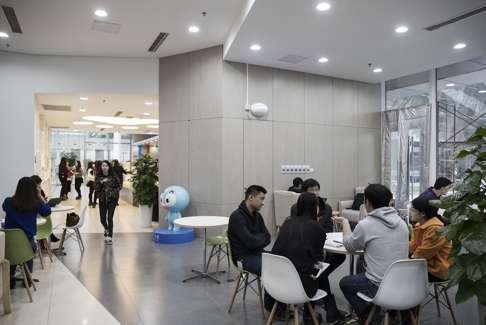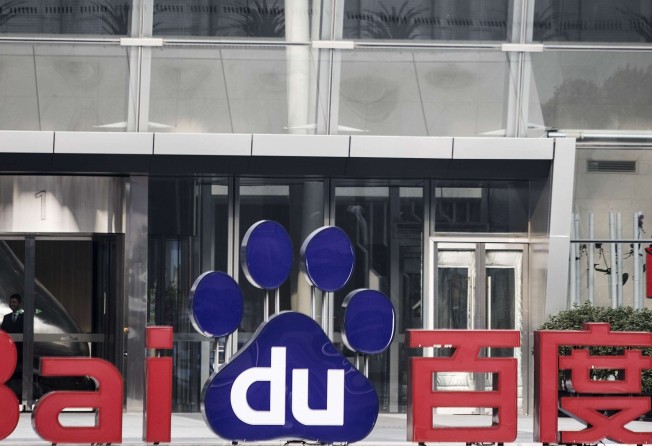
Baidu banks on augmented reality to bolster revenue, expand reach
Online search giant strengthens efforts to make interactive technology available to millions of smartphones users in China

Chinese online search giant Baidu on Monday set up an Augmented Reality Lab as part of its efforts to make the technology available to China’s hundreds of millions of smartphone users.
The lab, which is a spin-off of the Baidu Institute of Deep Learning, is dedicated to developing state of the art technologies and building augmented reality applications for various industries.
Augmented reality has been in the news recently, particularly after the tremendous popularity of Pokemon Go. However, it has not made big strides like virtual reality, as location-based augmented reality games are still banned on the mainland.
Andrew Ng, chief scientist of Baidu, however, see great potential for the technology, especially in areas like education, medical care and tourism, as the technology helps “people use a more interactive way to explore the world”.
“China is a mobile-first country. Many of the mobile phone-based innovation starts in China. That is why we expect the mobile phone to be the best way to popularise augmented reality in China, rather than persuade people to buy expensive headsets for enjoying the technology,”said Ng, who heads Baidu Research, the research arm that includes the augmented reality laboratory.
The lab is the Beijing-based Baidu’s latest effort to leverage the company’s technology and its massive customer base to develop applications powered by fundamental augmented reality technologies like image recognition, 3D computation and human-machine interaction after launching an AR platform for smartphones in August 2016.
Since the launch of the AR platform, Baidu has worked with several leading brands such as KFC, L’Oreal and Lancome on interactive marketing through augmented reality, seeking to use the new technology to gain new sources of growth.

The Robin Li Yanhong led company posted its first revenue decline during the quarter that ended in September 2016 since it was listed on the US bourses in 2005. Baidu’s revenues slumped after the Chinese government introduced tighter controls over medical-related paid search advertising since May 2016 following public outrage over the death of an university student, which was linked to a cancer treatment he found as a result of an online search result on Baidu.
Enabled by augmented reality, Baidu and KFC China jointly launched an interactive marketing champion in December that allows people to win discounts from the fast-food chain by playing augmented reality games via Mobile Baidu.
“Augmented reality allows us to synthesise the virtual world with the real world and will transform how all of us perceive our surroundings,” said Zhongqin Wu, head of Baidu’s new augmented reality lab.
“We have already seen a rapid growth in augmented reality marketing, and expect other industries to follow suit,” he said, adding that Baidu will build better augmented reality experiences with partners in gaming, entertainment and tourism this year without giving details.
Augmented reality functionality is now available in multiple Baidu products, including Mobile Baidu, Baidu Maps and local services application Nuomi.
In conjunction with the announcement of the AR Lab, Baidu also launched a project that “revives” the lost historical sites along a Beijing subway line via augmented reality technology.
By using Mobile Baidu application and pointing their smartphones at pictures on the walls and ground, passengers riding the Subway line 2 in Beijing can pull up a 3D virtual augmented reality simulation of nine historical city gates of the Chinese capital, which have either been demolished or drastically renovated.